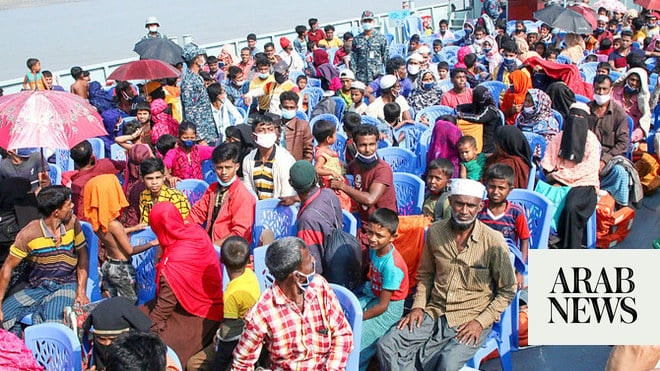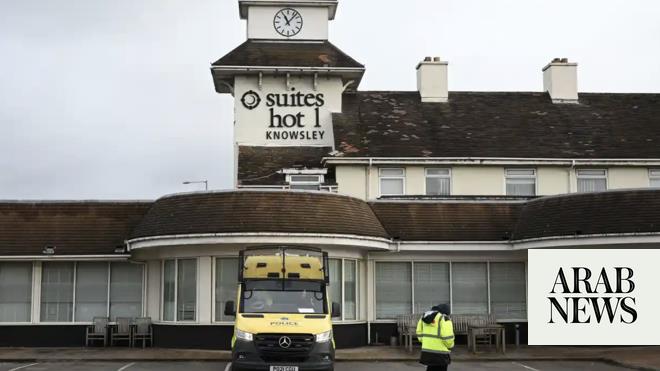
DHAKA: Bangladeshi police have denied allegations of abusing Rohingya refugees in Cox’s Bazar, after Human Rights Watch called on authorities to investigate reports of wrongful detention and harassment by security forces at camps there.
In a report published earlier this week, the global rights watchdog said that safety standards in Cox’s Bazar refugee settlements had deteriorated under the oversight of the Armed Police Battalion, which took over security for the camps in July 2020.
HRW said it had interviewed dozens of Rohingya in October and November 2022 and reviewed police reports documenting cases of “serious abuse by APBn officers,” including violence, detention on “apparently fabricated grounds,” and demanding bribes in exchange for release.
APBn said on Saturday that the accusations were “one-sided” and “baseless.”
“First of all, they didn’t ask us anything about the alleged incidents. They only talked to some Rohingyas who were arrested by the police,” Syed Harunor Rashid, the force’s additional deputy inspector general in Cox’s Bazar, told Arab News. “An impartial report cannot be produced based only on the comments of a few people who have been arrested. It’s a completely one-sided report, which was produced without talking to us, and it is untrueand baseless.”
Concerns over security in Rohingya settlements were raised in August after two refugee community leaders were shot dead, reportedly by an insurgent group which has been accused of killing scores of opponents and local community leaders since 2021. Reports of criminal organizations using refugees as drug traffickers have also been on the rise.
In October, APBn launched “Operation Root Out” in response to the spike in criminal activity, and, according to police data, around 1,000 Rohingya were arrested last year in cases related to murder, drugs, and illegal weapons.
“(We are continuing our drives) against this sort of activity. The situation is under control so far,” Rashid said.
“We are recovering the drugs and weapons, and arresting the people involved in this sort of activity. More than 2,000 members of APBn have been deployed here in Cox’s Bazar to maintain law and order.”
Bangladesh currently hosts more than 1.2 million Rohingya Muslims, most of whom fled neighboring Myanmar during a military crackdown in 2017. Most of them live in squalid conditions in camps in Cox’s Bazar, a coastal region in eastern Bangladesh, which has become the world’s largest refugee settlement.
The 2022 Joint Response Plan for the Rohingya humanitarian crisis received less than half of the $881 million needed for the year, and HRW urged donors, including the US, UK, EU and Australia, to increase funding but also to “press the Bangladeshi authorities to investigate alleged abuses against Rohingya living in refugee camps in Cox’s Bazar, (and) ensure that victims have effective remedies, and develop measures to better protect refugees.”
Bangladeshi Home Minister Asaduzzaman Khan Kamal responded to the call by saying that it was the HRW that “should investigate properly.”
But the watchdog’s allegations warrant a probe, according to Bangladeshi lawyer and rights activist Jyotirmoy Barua.
“According to the spirit of our law, if any allegations come to the surface that someone’s life has been threatened by the persons who are given the responsibility to protect that life — whatever the form of the threat or harassment is — it should be investigated impartially,” he told Arab News.
“I am not saying these allegations are true or false, as I have no personal knowledge of the matter. But since allegations have been raised, I think there should be an impartial investigation into the matter.”












